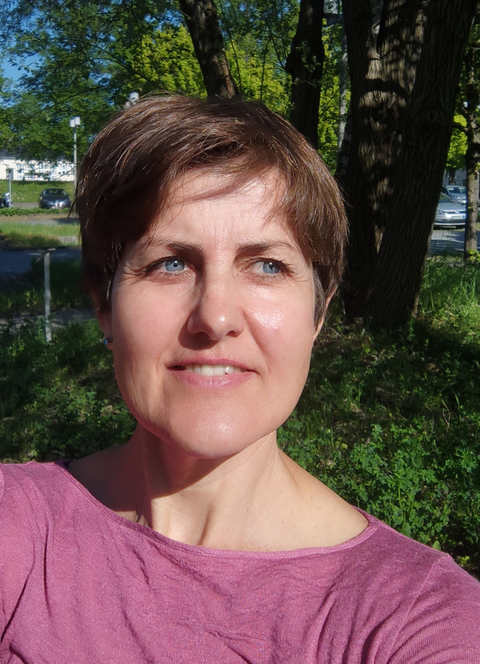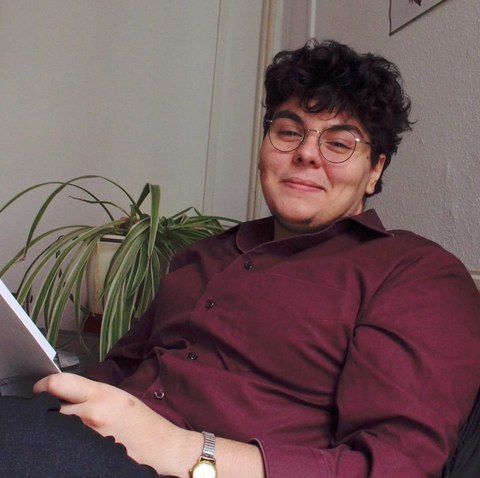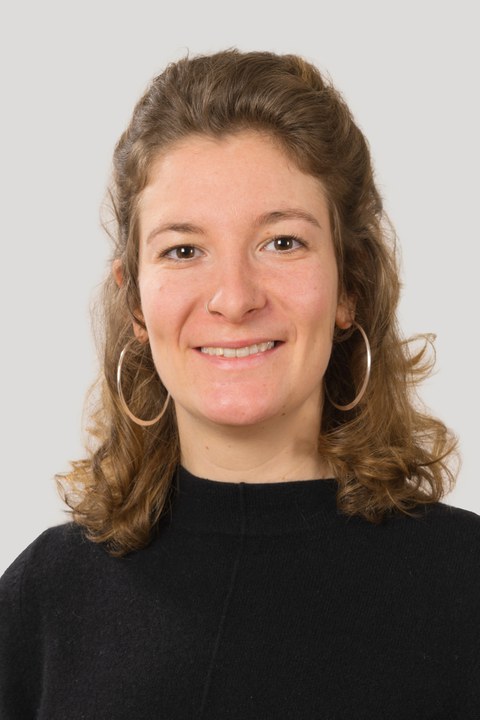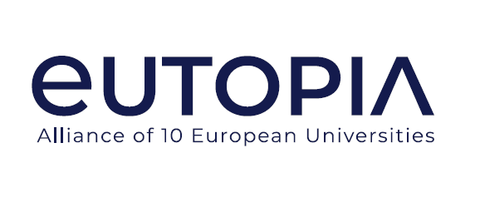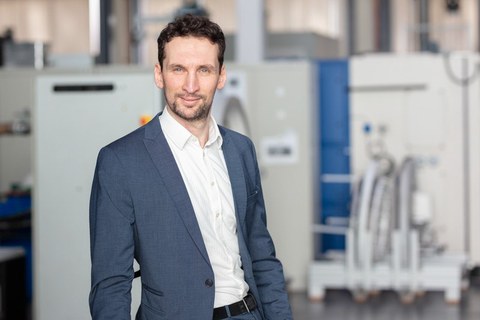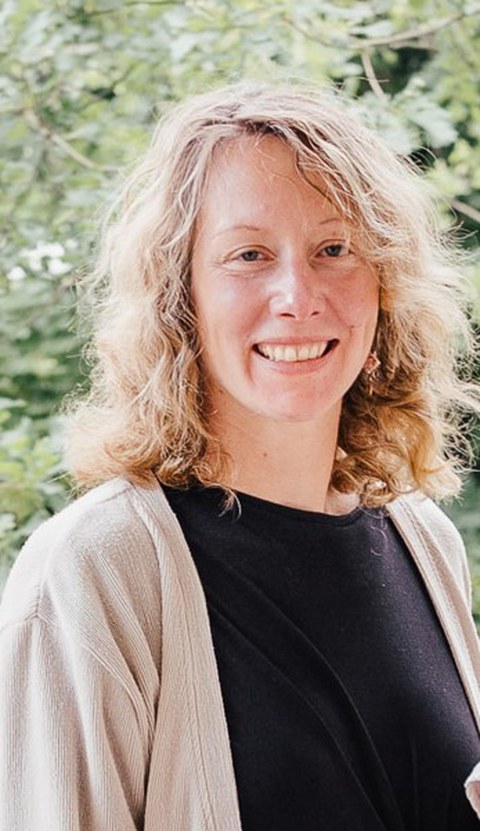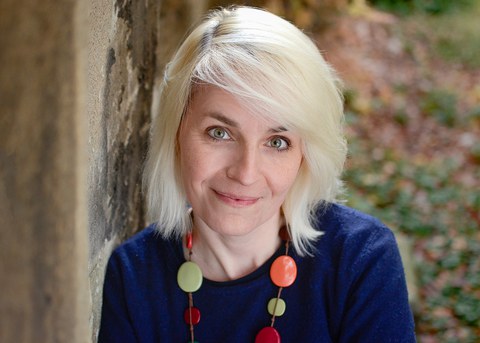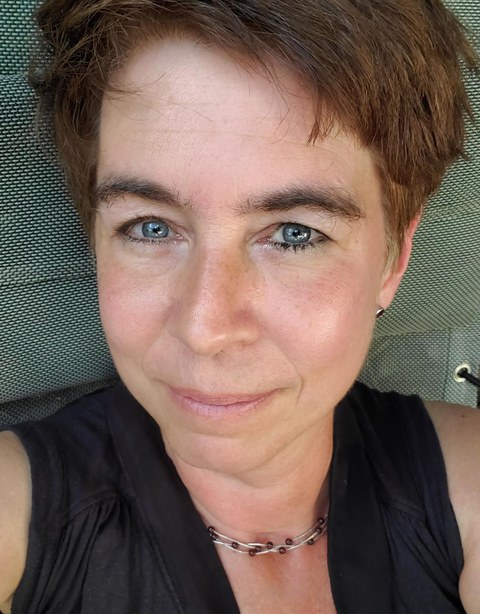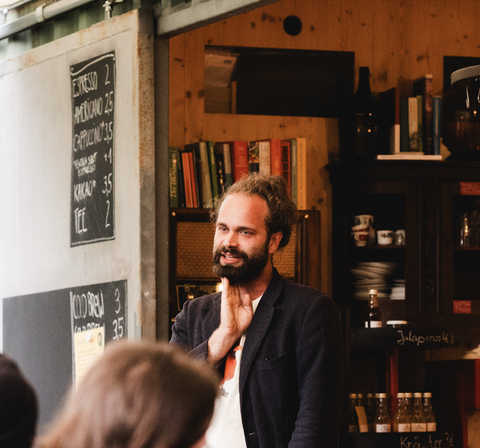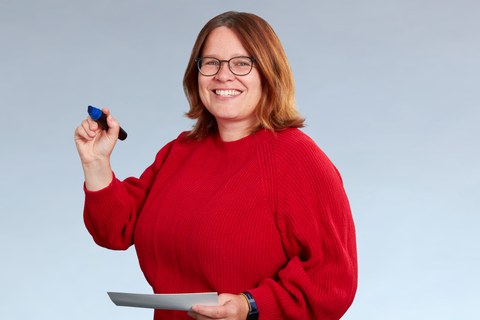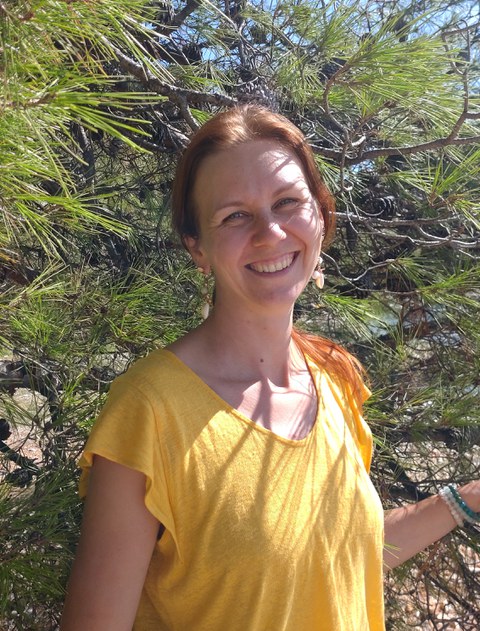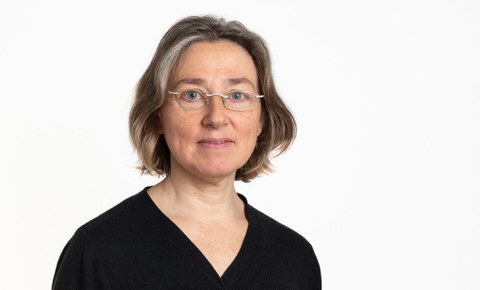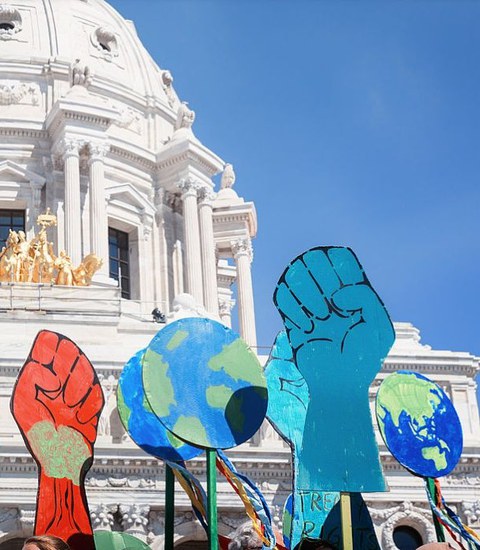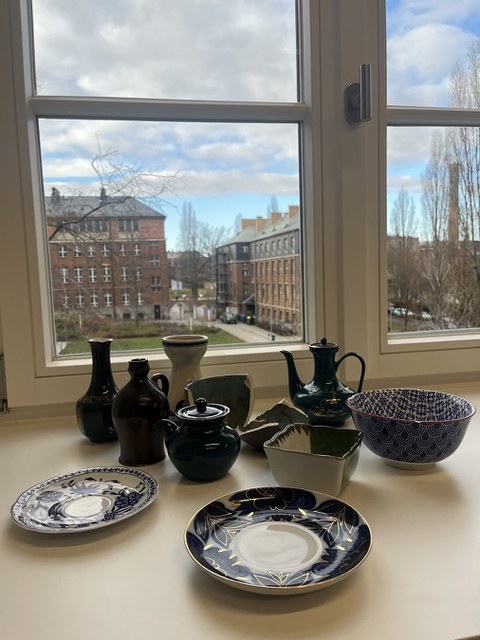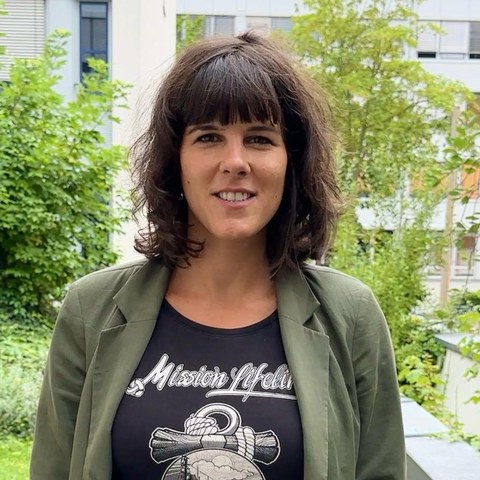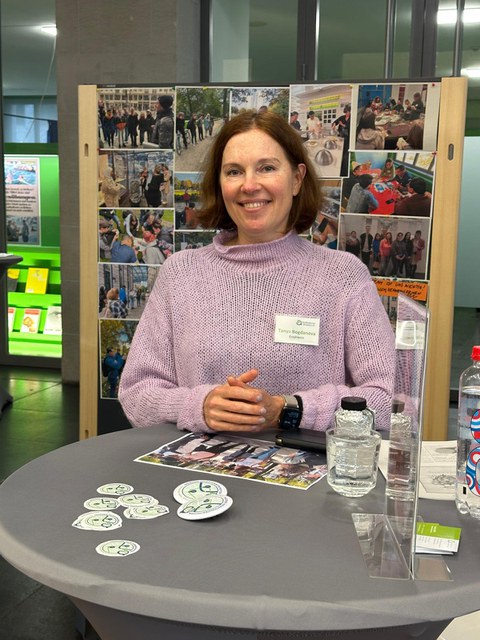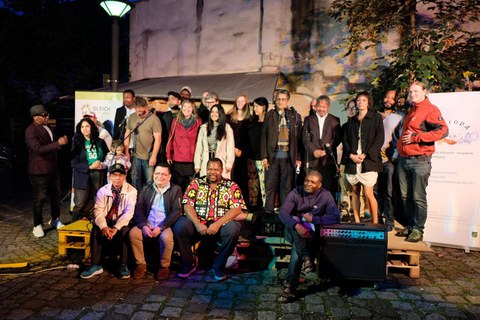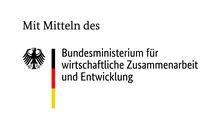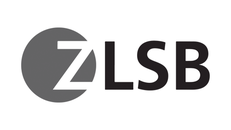TUD Global Citizenship Lab
Inhaltsverzeichnis
Das TUD Global Citizenship Lab ist die verpflichtende Einführungsveranstaltung des Zertifikatsprogramms TUD Global Citizenship Certificate (kurz: GCC) im Modul Knowledge.
Es wurde gefördert vom Bundesministerium für Forschung, Technologie und Raumfahrt (BMFTR) und dem Freistaat Sachsen im Rahmen der Exzellenzstrategie von Bund und Ländern.
Es ist zugleich ein Kooperationslernangebot, beispielsweise partnerschaftlich unterstützt durch das Zentrum für Lehrerbildung, Schul- und Berufsbildungsforschung (ZLSB) im Sommersemester 2024 im Rahmen der Länderinitiative BNE SDG 4 – Bildung für nachhaltige Entwicklung (BNE) in der universitären Lehrkräftebildung in Sachsen, welche von Engagement Global durch Mittel des Ministeriums für wirtschaftliche Zusammenarbeit und Entwicklung gefördert wird.
Im Wintersemester 2025/2026 wird das Global Citizenship Lab als eine Kooperationsveranstaltung zwischen dem Programm „TUD Global Citizenship Certificate“ und der Philipp Schwartz-Initiative der TUD für gefährdete Wissenschaftler:innen angeboten und steht allen interessierten TUD-Angehörigen, einschließlich (Austausch-)Studierenden, Promotionsstudierenden, Fellows der Philipp Schwartz-Initiative, Wissenschaftler:innen und Mitarbeiter:innen, offen.
Termine
Das TUD Global Citizenship Lab wird nach Möglichkeit jedes Semester angeboten. Wann du die Einführungsveranstaltung besuchst, ist dir selbst überlassen. Empfehlenswert ist jedoch, dass du die Veranstaltung zu Beginn deiner Teilnahme am GCC-Programm besuchst, um eine gute Orientierung zu erhalten und dich gleich einem unterstützenden Netzwerk aus Gleichgesinnten und Engagierten der TU Dresden und lokalen Zivilgesellschaft anzuschließen.
Das nächste TUD Global Citizenship Lab im WiSe 2025/2026 findet unter dem Motto "Global Citizenship in Times of War and Crisis – Navigating Conflict, Reshaping Peace" als zweitägige Blockveranstaltung (1 ECTS über studium generale) am
- Freitag, 30.01.2026 (9:00 - 17:00 Uhr) und
- Samstag, 31.01.2026 (9:00 - 18:00 Uhr)
im COSMO-Wissenschaftsforum, Schlosstraße 2 (am Altmarkt) in Dresden statt.
Zielgruppe: Die Verantstaltung steht GCC-Programmteilnehmenden, Fellows der Philipp Schwartz-Initiative, aber auch weiteren interessierten TUD-Angehörigen, einschließlich (Austausch-)Studierenden, Promovierenden, Wissenschaftler:innen und Mitarbeiter:innen, offen.
Die Einschreibung findet über OPAL statt. Anmeldeschluss ist der 15.01.2026.
Programme vergangener TUD Global Citizenship Lab-Veranstaltungen
Programm TUD Global Citizenship Lab SoSe 2025
Freitag, 13.06.2025
Den detaillierten zeitlichen Ablauf (inklusive Informationen zu Beginn und Ende der beiden Workshop-Tage) findet ihr in unserem OPAL-Kurs.
Workshop: „Sustainability challenge!“
Wir leben in einer beispiellosen Zeit. Im sog. „Anthropozän“ untergräbt der Mensch das natürliche System, von dem wir alle abhängig sind –mit katastrophalen und unvorhersehbaren Folgen. Der Bildung kommt eine einzigartige Rolle zu, wenn es darum geht, den Menschen dabei zu helfen, die Werte, Überzeugungen und Verhaltensweisen zu verstehen, die nachhaltigem Handeln schaden. Ebenfalls unterstützt die Bildung Menschen dabei, alternative Wege zu erkunden, um die Welt zu sehen, um denken und handeln zu können – auf individueller und kollektiver Ebene. Der eintägige Workshop zielt darauf ab, Nachhaltigkeitskompetenzen der Teilnehmenden zu schulen und auszubauen (z. B. Brundiers et al., 2021; Bianchi et al., 2022). Durch die Teilnahme an interaktiven, kreativen und kritisch-reflektierenden Übungseingheiten werdet ihr sukzessive einen Reflexions- und Aktionsprozess zu einer Nachhaltigkeits-Challenge eurer Wahl durchlaufen. Zu den Hauptaspekten gehören in diesem Workshop: Persönliche Identität und Werte, Nachhaltigkeitsdefinitionen und -perspektiven, Nachhaltigkeitsprobleme sowie ihre global-lokalen Wurzeln und Auswirkungen, eine nachhaltige Zukunft und die Erkundung umsetzbarer und wirksamer Maßnahmen. Ihr habt die Chance, mit Hilfe unserer Referent:innen Dr. Rachel Bowden, Flor de Matos und Sita Buchberger euren persönlichen Handlungsrahmen zum Komplex Nachhaltigkeit zu finden.
Dr. Rachel Bowden ist wissenschaftliche Mitarbeiterin am Zentrum für Lehrerbildung, Schul- und Berufsforschung (ZLSB), wo sie die Erasmus+ Teacher Academy-Teaching Sustainability und die Landesinitiative BNE „SDG 4: BNE in der universitären Lehrerbildung in Sachsen“ koordiniert. Bevor sie nach Deutschland kam, lebte und arbeitete Rachel unter anderem in Malaysia, Sri Lanka, Nepal, Indien und Nicaragua.
Flor de Matos (er/dey) ist Educator und Jugendbetreuer:in mit Leidenschaft für die Handlungsfelder Diversität und Inklusion. Flors Tätigkeiten finden in verschiedenen Bereichen statt – von Kunst und Kultur über Soziales bis hin zu Klimaaktionen. Dabei liegt der Hauptfokus darauf, sichere Räume zu schaffen, in denen Menschen zusammen wachsen können.
Zur Zeit ist Flor aktiv beim CAMBIO e.V. und leistet den Bundesfreiwilligendienst (BFD). In diesem Rahmen entwickelt dey sowohl Bildungsprojekte im internationalen Kontext, als auch lokale Akionen, die u.a. von Erasmus+ und European Solidarity Corps program gefördert werden.
Als Referentin für Globales Lernen und Bildung für nachhaltige Entwicklung (BNE) in Sachsen unterstützt Sita Buchberger Pädagoginnen und Pädagogen sowie Multiplikator:innen bei der Auseinandersetzung mit Themen wie den SDGs der UNESCO, globaler Gerechtigkeit, Nachhaltigkeit, Geschlechtergerechtigkeit und postkolonialen Perspektiven.
Außerdem ist sie Eine-Welt-Promotorin für Sachsen im Trägerverein arche noVa – Initiative für Menschen in Not e.V.. Sita glaubt fest daran, dass es möglich ist, eine gerechte und nachhaltige Zukunft gemeinsam zu gestalten – ausgehend von lokalen Erfahrungen und Reflexionen unserer Rolle in globalen Zusammenhängen.
Samstag, 14.06.2025
Kurzvorstellung Programm TUD Global Citizenship Certificate
Das GCC-Team wird euch einen kompakten Einblick in das TUD Global Citizenship Programm geben. Im Anschluss werdet ihr die Möglichkeit haben, Fragen zum Programm zu stellen.
Online-Kurzvorstellung "EUTOPIA Certificate of Internationalisation" und “UNESCO Stories Circles”
Unser Gast Lewis Beer von der europäischen Universitätsallianz EUTOPIA, der an der University of Warwick tätig ist, wird euch einen kurzen Einblick in ein Partnerprogramm des GCC geben: das EUTOPIA Certificate of Internationalisation (EUCI). Zudem stellt euch Werner de Wit (Stellenbosch University, South Africa) eine spannende Methode zur respektvollen und zielführenden Interaktion mit Anderen im globalen Kontext vor: die UNESCO Story Circles. Hierbei lernt ihr, Anderen vorurteilsfrei gegenüber zu treten und negative Vorannahmen hinter euch zu lassen.
Pitch-Runde und Podiumsdiskussion “Partnership and Participation & Engagement”
Das Motto des TUD Global Citizenship Labs in diesem Sommersemester lautet: „Global Citizenship Education – Partnership and Participation”. Um euch zu zeigen, wie Partnerschaft und Partizipation nicht nur in der Stadtgesellschaft, sondern auch im wissenschaftlichen sowie ehrenamtlichen Kontext gelebt werden, haben wir interessante Gäste zu einer Pitchrunde mit anschließender Diskussion eingeladen. Dabei habt ihr die Möglichkeit, mit unseren Gästen über deren Arbeit, Motivation und Erfahrungen ins Gespräch zu kommen sowie Anregungen für euer eigenes ehrenamtliches Engagement (im Rahmen eurer Teilnahme am GCC-Programm oder privat) zu erhalten.
Dr. Sebastian Spitzer ist wissenschaftlicher Mitarbeiter am Institut für Leichtbau und Kunststofftechnik (ILK) der TU Dresden und beschäftigt sich mit der Entwicklung innovativer Leichtbaustrukturen für zukünftige Mobilitäts- und Energieanwendungen. Bis April 2024 leitete er die Lightweight Design Gruppe am ILK, bevor er für ein Jahr die Professur für Leichtbau an der Universität Rostock übernahm. Im April 2025 kehrte er an die TU Dresden zurück, um seine Forschung zu fortschrittlichen Werkstoffen und nachhaltigen Ingenieurlösungen fortzusetzen.
Sein Interesse an Asien begann mit einem Studienaufenthalt an der Tohoku University in Japan im Jahr 2009 und hat sich seitdem zu einer starken akademischen Zusammenarbeit mit Südkorea entwickelt. Seit 2015 arbeitet er eng mit Dr. Soon Ho Yoon vom Korea Institute of Science and Technology (KIST) in Jeonbuk zusammen. Zusammen führen sie gemeinsame Forschungsprojekte durch, sind Co-Autoren von Publikationen und fördern den Studierendenaustausch zwischen Deutschland und Korea. Dr. Spitzer trägt aktiv zum Ländernetzwerk Korea der TU Dresden bei und ist ein Beispiel dafür, wie ingenieurwissenschaftliche Zusammenarbeit globales Verständnis und verantwortungsbewusste Innovation fördern kann.
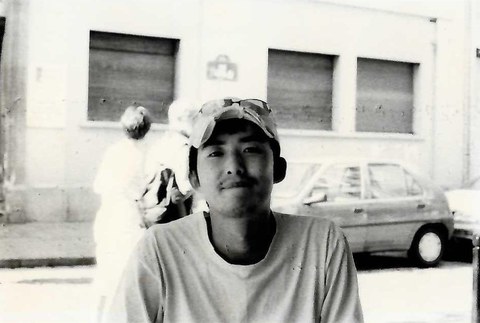
Dr. Soon Ho Yoon
Dr. Soon Ho Yoon ist leitender Forscher am Korea Institute of Science and Technology (KIST) in Jeonbuk, wo er die Forschung zu fortschrittlichen Verbundstrukturen für Mobilitätssysteme der nächsten Generation leitet. Seinen Doktortitel erwarb er am Korea Advanced Institute of Science and Technology (KAIST) in Daejeon. Seine Forschung konzentriert sich auf die Entwicklung und Optimierung von leichten Verbundwerkstoffkomponenten und -strukturen für Elektro- und Wasserstofffahrzeuge, Schiffe, urbane Luftmobilität und Luft- und Raumfahrtsysteme. Er arbeitet auch an neuartigen Konstruktionsmethoden und Simulationswerkzeugen, die multiphysikalische Phänomene integrieren und künstliche Intelligenz und maschinelles Lernen nutzen.
Im Jahr 2015 verbrachte Dr. Yoon ein Jahr am Institut für Leichtbau und Kunststofftechnik (ILK) der TU Dresden, wo er eine enge fachliche und persönliche Partnerschaft mit Dr. Sebastian Spitzer einging. Heute sind sie die Hauptkoordinatoren der laufenden Zusammenarbeit zwischen KIST und TU Dresden. Gemeinsam fördern sie den akademischen Austausch, gegenseitige Forschungsbesuche und die gemeinsame Entwicklung neuer Forschungsthemen, die eine Brücke zwischen Korea und Deutschland auf dem Gebiet der fortschrittlichen Leichtbautechnologien schlagen.
Charlotte Müller arbeitet für die Freiwilligenagentur ehrensache.jetzt der Bürgerstiftung Dresden. Die Freiwilligenagentur ist eine Beratungs- und Vermittlungsstelle für gemeinnützige Organisationen und alle Dresdner:innen, die sich ehrenamtlich engagieren möchten. Hauptinstrument der Vermittlung ist die Onlineplattform, die Anfang 2019 online ging. Außerdem bietet die Freiwilligenagentur persönliche Beratungsgespräche rund um das Thema Ehrenamt an. Darüber hinaus Organisiert die Freiwilligenagentur verschiedene Projekte und Veranstaltungen zum Thema Engagement in Dresden, z.B. die jährlich stattfindende Ehrenamtsbörse.
Kristina Krömer hat Politikwissenschaft, Soziologie und Friedens-/Konfliktforschung in Marburg studiert. Seit dem Studium erforscht sie Möglichkeiten, Demokratie als Lebensform zu etablieren und dabei weiterzuentwickeln. Mit metro_polis nutzt sie den Alltagsraum Straßen-/Bahn als dynamische Agora (griech. zentraler Platz einer Stadt) und diskutiert mit Fahrgästen die Herausforderungen unserer Gegenwart: kontrovers und trotzdem konstruktiv.
Workshop: Demokratiearbeit im Alltag – Learnings und Übungen aus dem Projekt „metro_polis“
metro_polis findet dort statt, wo die Gesellschaft jeden Tag selbstverständlich versammelt ist: in der Bahn. In Gesprächen mit mittlerweile 12.000 Fahrgästen hat das Projekt Antworten auf folgende Fragen gefunden:
- Wie können Menschen unterschiedlichster Herkunft und Haltung miteinander in Kontakt gebracht werden?
- Wie können gesellschaftliche Kontroversen so diskutiert werden, dass der Austausch darüber nicht spaltend, sondern verbindend wirkt?
- Wie können komplexe politische Themen so aufbereitet werden, dass eine wirkliche breite Beteiligung möglich ist?
Im Workshop diskutieren wir die Erfahrungen aus dem Projekt metro_polis und üben, demokratische Diskurse zwischen einander unbekannten Personen anzuleiten. Referentin: Kristina Krömer, Projekt metro_polis, ausgezeichnet mit dem Deutschen Engagementpreis 2023)
Workshop: Wir alle… – Performative Methoden zum transkulturellen Austausch
Ein gleichberechtigter Austausch auf Augenhöhe, gegenseitiges Zuhören, das Ernstnehmen von Kompetenzen und biografischen Narrativen anderer sind Voraussetzungen für Partizipation und gesellschaftlichen Austausch.
In diesem Workshop wollen wir spielerisch performative Recherche- und Kommunikationsmethoden erproben, die man im öffentlichen Raum sowie in transkulturellen Zusammenhängen nutzen kann.
Katja Heiser arbeitet seit vielen Jahren als Theatermacherin und Kulturschaffende auf und jenseits der Bühne. Ausgangspunkt ihrer Inszenierungen und Stückentwicklungen sind die Expertise, die Erfahrungen und biografischen Narrative der Beteiligten, die für die Bühne in eine theatrale bzw. performative Form gebracht werden. Daneben beschäftigt sie sich schwerpunktmäßig mit performativen Recherche- und Kommunikationsmethoden im öffentlichen Raum sowie in transkulturellen Zusammenhängen, der Entwicklung und Erprobung spielerischer Formen, sich in verschiedenen Kontexten zu begegnen oder seine Meinung kundzutun.
Workshop: Placemaking in der Alten Gärtnerei – Angewandte Transformation
Alle großen Gegenwartsfragen, die aus der Notwendigkeit zur Transformation entspringen, müssen verhandelt, ausprobiert und in die Praxis gebracht werden. In der Alten Gärtnerei in Dresden-Pieschen tun wir das seit 2019 und verwandeln ehemals brachgefallene Gartenbau-Flächen in einen zukunfsträchtigen Ort, der eine gesunde Ökologie ebenso in den Mittelpunkt stellt wie die Menschen in der Stadt. Lassen sich Ernährungswende und gute Lebensmittel, Produktivität und Ästhetik, Lernen und Verweilen vereinen?
Bei einer explorativen Führung lernt ihr eure eigenen Interessen ebenso kennen wie den Ort selbst. Einblicke in die Module und Geschichte des Projekts stellen immer wieder eine Brücke zwischen konzeptionellen Ausgangsüberlegungen auf der einen Seite und den zahlreichen praktischen Erfahrungen auf der anderen Seite her. Ist es inzwischen ein gemachter Ort?
Anschließend gibt es bei einem gemeinsamen Ausklang genügend Raum und Anregung für offene Fragen.
Sebastian Kaiser ist Permakultur-Designer, Gründungsmitglied und Co-Geschäftsführer der Alten Gärtnerei in Dresden-Pieschen. Neben dem ständigen Gärtnern und Bauen auf der Fläche beschäftigen ihn Fragen der Stadtentwicklung von unten, Flächengerechtigkeit in der Mobilität, Ästhetik und das gute Leben sowie italienische Küche.
Programm TUD Global Citizenship Lab WiSe 2025/2026
Den detaillierten zeitlichen Ablauf (inklusive Informationen zu Beginn und Ende der beiden Workshop-Tage) findet ihr in unserem OPAL-Kurs.
Freitag, 30.01.2026
Am ersten Tag taucht ihr in drei interaktive Workshops ein, die zeigen, wie Friedens- und Konfliktfähigkeit auf individueller, zwischenmenschlicher und gesellschaftlicher Ebene gestärkt werden kann.
Auftakt: „Frieden und ich – persönliche Perspektiven“
Das GCC-Team führt euch in das Thema ein und lädt euch zur persönlichen Selbstreflexion ein. Es werden eure zentralen Anliegen, Lernziele und Schlüsselfragen zum Thema Global Citizenship in Zeiten von Krieg und Konflikten geklärt. Ergänzend wird das Awareness-Konzept vorgestellt und eine Handreichung zur traumasensiblen Kommunikation erläutert.
Workshop: „Konfliktmanagement in sächsischen Kommunen“
Wie können Kommunen in Krisenzeiten mit zunehmender Polarisierung und Konflikten umgehen? Im Workshop „Konfliktmanagement in sächsischen Kommunen“ gibt Dr. Cathleen Bochmann Einblicke aus jahrelanger Forschung und praxisnaher Zusammenarbeit mit Kommunalverwaltungen in Sachsen im Rahmen des Kompetenzzentrums Krisen-Dialog-Zukunft. Von der Analyse von Konfliktphasen und Eskalationsdynamiken bis hin zum Einsatz von Bürgerdialogen als Instrumente der Deeskalation verbindet diese interaktive Veranstaltung theoretische Grundlagen mit Praxisbeispielen und aktiver Beteiligung. Die Teilnehmenden lernen, was gute Konfliktmoderation und -kommunikation ausmacht, und erleben ein kurzes Dialogformat aus erster Hand.
Dr. Cathleen Bochmann ist Politikwissenschaftlerin und Expertin für kommunales Konfliktmanagement und Bürgerdialoge. Sie arbeitet an der Schnittstelle von Forschung und Praxis und berät Kommunalverwaltungen im Umgang mit Polarisierung, Krisensituationen und demokratischen Konflikten. Der Schwerpunkt ihrer Arbeit liegt auf Dialogformaten und Moderationsstrategien in stark umkämpften Kontexten. Zwölf Jahre lang war sie als wissenschaftliche Mitarbeiterin und Dozentin an der TUD tätig.
Workshop: „Der Frieden als körperliche Erfahrung: Friedensfähigkeit mit Qigong“
Der Frieden in der Welt beginnt in uns. Es gibt eine alte Zen-Fabel über einen großen Meister, der gefragt wurde, was er für den Frieden in der Welt unternehme. Der Meister sagte: „Ich mache mir einen Tee.“ Natürlich nicht als Hohn gemeint, verdeutlicht diese Geschichte die Wichtigkeit der inneren Kultivierung, die allen fernöstlichen Lehren zugrunde liegt. Die deutsche Sprache verdeutlicht, dass die Wörter „Frieden“ und „Zufriedenheit“ miteinander verwandt sind. Bin ich mit meinem Leben zufrieden, so habe ich kaum Anlass zu Aggression gegen die Menschen um mich herum. Ich bin nicht an Gewalt interessiert, weder körperlich noch verbal oder mental, weder persönlich noch auf politischer Ebene.
Chinesische Naturphilosophie beschreibt den Zusammenhang der menschlichen Emotionen mit dem energetischen Zustand der inneren Organe. Sind die Organsysteme ausgeglichen, so rufen sie positive Emotionen („Tugenden“) hervor; in einem Zustand des Ungleichgewichts produzieren sie negative Empfindungen. So lässt sich eine These aufstellen: Der Frieden entsteht längst VOR einer Interaktion mit anderen, denn er entspringt der inneren Einstellung eines jeden Menschen sich selbst und dem Leben gegenüber. So kann Frieden als körperliche Kompetenz gesehen werden, als eine Form von Selbst- und Welterfahrung. Das Erleben der philosophischen und körperlichen Grundprinzipien des Qigong kann zu einem friedlichen, harmonischen, bewegten und wechselwirkenden Zusammenleben führen. „Auf die inneren Werte kommt es an.“
Qigong-Lehrerin Nataliya Urban ist im Ural, direkt an der Grenze zwischen Europa und Asien, geboren und aufgewachsen. Seit ihrem 16. Lebensjahr praktiziert sie hingebungsvoll Zhong Yuan Qigong – eine uralte Qigong-Tradition. Das Diplomstudium der Sprach- und Übersetzungswissenschaft hat ihre Lage noch „ernster“ gemacht und sie dazu prädestiniert, eine Brückenbauerin zwischen Kulturen und Denkansätzen zu werden.
Workshop: „Gewaltfreie Kommunikation in Beruf und Alltag für mehr Frieden in Konfliktzeiten“
In diesem Workshop werden wir ein bisschen von Marshall Rosenbergs Gewaltfreier Kommunikation (GFK) lernen, die auf Bedürfnissen und Gefühlen basiert. Wir werden „die vier berühmten Schritte“ kennenlernen, etwas über den Hintergrund erfahren und so viele praktische Übungen machen, wie unsere Zeit erlaubt. Weil diese Methode universell ist, ist sie im internationalen Kontext ideal.
Lisa Behnke stammt aus einer Familie, die stark durch den zweiten Weltkrieg geprägt wurde. Durch die Gewaltfreie Kommunikation hat sie zu innerem Frieden gefunden. Durch Zufall fand sie vor 12 Jahren die GFK und praktiziert seit dem diese Lebensphilosophie. Inzwischen engagiert sie sich mit Begeisterung in ihrer Umgebung, um mehr Frieden in die Welt zu bringen. So gibt sie ihr Wissen in einer Übungsgruppe in Dresden-Ost weiter und gibt Workshops an der TU Dresden, wie diesen.
Kurzvorstellung Programm TUD Global Citizenship Certificate
Das GCC-Team wird euch einen kompakten Einblick in das TUD Global Citizenship Certificate Programm geben. Im Anschluss werdet ihr die Möglichkeit haben, Fragen zum Programm zu stellen.
Samstag, 31.01.2026
Am zweiten Tag erwartet euch ein vielfältiges Programm mit einem Kurzvortrag, einer Podiumsdiskussion, einem Kreativ-Workshop sowie einem gemeinsamen Spaziergang und einem Café-Besuch mit indischem Essen. Dabei rücken die Verantwortung jedes Einzelnen und der Stadtgesellschaft sowie zentrale Fragen zu Resilienz, Perspektivenwechsel und Erinnerungskultur in den Fokus.
Kurzvortrag: „Medienmanipulation erkennen und Medienkompetenz fördern: Erkenntnisse aus einem Bildungsprojekt in Kasachstan“
Was wir über Konflikte wissen, ist stark durch mediale Darstellungen geprägt. Gerade in Krisenzeiten wächst damit die Verantwortung von Medien und Mediennutzenden gleichermaßen. Medienkompetenz ist daher eine zentrale Kompetenz für Global Citizenship: Sie befähigt dazu, Informationen kritisch zu hinterfragen, Manipulationsstrategien, Voreingenommenheit und Desinformation zu erkennen und sich verantwortungsvoll in einer zunehmend vernetzten Welt zu orientieren.
Im Kurzvortrag werden Erkenntnisse aus einem Bildungs- und Forschungsprojekt in Kasachstan vorgestellt, das sprachliche Mechanismen der Medienmanipulation im dortigen Informationsraum untersucht hat. Auf dieser Grundlage lädt der Vortrag dazu ein, die eigene Rolle als Mediennutzer:in zu reflektieren und die gemeinsame Verantwortung zu erkennen, die wir als Teilnehmende an öffentlichen und digitalen Kommunikationsprozessen tragen.
Prof. Holger Kuße ist Professor für Slavische Sprachgeschichte und Sprachwissenschaft an der TUD und geschäftsführender Direktor des Zentrums Mittleres uns Östliches Europa. Zu seinen Forschungsschwerpunkten gehören Pragmalinguistik, historische Pragmatik, Argumentationstheorie und kulturwissenschaftliche Linguistik, bezogen vor allem auf das Russische und Tschechische. In zahlreichen Projekten und Publikationen hat er sich mit der Analyse sprachlicher, rhetorischer und medialer Strategien in politischen Konflikten und Konfliktdiskursen befasst. Ein besonderer Schwerpunkt seiner Arbeit liegt auf dem russisch-ukrainischen Krieg, insbesondere auf Putins Kriegsrhetorik, der Rolle von Aggression und Argumentation im politischen Diskurs sowie auf Mechanismen der Medienmanipulation. Diese Themen spiegeln sich exemplarisch in den Projekten Aggression und Argumentation: Konfliktdiskurse und ihre sprachliche Verhandlung (VolkswagenStiftung, 2016–2019) sowie im internationalen Gemeinschaftsprojekt mit der Muchtar-Äuesow-Universität in Kasachstan zur Medienmanipulation und Medienkompetenz (2023–2025) wider.
Podiumsdiskussion: „Akademische Freiheit und Weltbürgerschaft in Zeiten nationaler und internationaler antidemokratischer und wissenschaftsfeindlicher Bestrebungen“
Ein besonderes Merkmal des diesjährigen TUD Global Citizenship Lab ist die Kollaboration mit der Philipp Schwartz-Initiative.
In disem Panel diskutieren wir, wie akademische Freiheit angesichts internationaler Krisen und antidemokratischer Entwicklungen geschützt werden kann. Im ersten Teil stellen wir die Philipp Schwartz-Initiative an der TUD vor. Gefördert von der Alexander von Humboldt Stiftung, unterstützt sie Wissenschaftler:innen, die durch Krieg oder politische Verfolgung gefährdet sind. Eine Fellow, ein Mentor und der Projektleiter der Initiative geben Einblicke in ihre Arbeit und Erfahrungen.
Wissenschaft findet nicht im luftleeren Raum – sie lebt von der Freiheit der Forschung. Gleichzeitig bildet wissenschaftlich fundiertes Wissen die Grundlage für demokratische Gesellschaften. Im zweiten Teil weiten wir den Blick auf politische und gesellschaftliche Akteur:innen: Wie gehen sie mit antidemokratischen und wissenschaftsfeindlichen Entwicklungen um? Welche Maßnahmen ergreifen Stadt Dresden und die Landeszentrale für politische Bildung – und wie kann jede:r von uns zivilgesellschaftlich aktiv werden?
Kreativ-Workshop: “Kintsugi: Die Schönheit der Narben. Heilung, Reparatur und Versöhnung nach Konflikten”
Kintsugi, die japanische Kunst, zerbrochene Keramik mit Gold zu reparieren, steht symbolisch für Heilung, den Umgang mit Unvollkommenheit und den Wiederaufbau nach Konflikten. Anstatt Schäden zu verbergen, macht Kintsugi sie sichtbar und verwandelt Brüche in Zeichen von Resilienz und Schönheit.
In dieser therapeutischen Session widmen wir uns der persönlichen und kollektiven Heilung. Die Teilnehmer:innen erfahren, wie zerbrochene Strukturen wiederaufgebaut werden können – durch Empathie, Geduld und gemeinsames Handeln.
Biografische Stadtführung: „Dresdner Migrationsgeschichten: Input & Stadteilspaziergang“
Mit Biografiearbeit zur Sensibilisierung über Flucht und Migration: In diesem Workshop erhalten wir einen Einblick in ein Empowerment- & Bildungsprojekt zum Thema Flucht und Migration: interaktiv und praktisch. Das Projekt zielte soziale Teilhabe und Empowerment von Menschen mit Zuwanderungsgeschichte, in dem sie als Ehrenamtliche aktiv waren und in Begegnungsformaten ihre ganz persönlichen Geschichten der Migration und Flucht mit ihrem Publikum teilten: als Expert:innen in eigener Sache im Format der politischen Bildung für diverse Zielgruppen.
Im zweiten Teil gehen wir zusammen zu Fuß aus der Altstadt in die Dresdner Neustadt, wo Tatiana Bogdanova, Fachärztin aus St. Petersburg, einen Vorgeschmack in ihre biografische Stadttour gibt. Unterwegs zeigt sie Orte, die Parallelen mit ihrer eigenen Biografie darstellen und berichtet zu den Themen Flucht, russische Kriegspropaganda oder ihre jüdische Herkunft.
Ivana Pezlarova ist Referentin in der politischen Bildung und Leiterin des Projektes „Dresdner Migrationsgeschichten“. Tatiana Bogdanova ist Fachärztin für Geriatrie und ehrenamtliche Stadtführerin im Projekt.
Gespräch mit Afropa e.V. im Weltclub: Migration, Erinnerungskultur und zivilgesellschaftliches Engagement gegen Rassismus in Dresden
Der Afropa e.V. – Verein für afrikanisch-europäische Verständigung lädt in den Weltclub in die Dresdner Neustadt ein, um über die vielfältige Stadtgesellschaft und Migrationsgeschichte Dresdens zu sprechen. Mit dabei sind Marita Schieferdecker-Adolph (Vorstand des Vereins), Paolo Le van (Beirat für Erinnerungskulturen), Thomas Kollecker (Projekt „Welten unterwegs“) und Dr. Hussein Jinah (Vorstandsmitglied).
Es geht dabei um die Migrationsgeschichte der ehemaligen DDR, wie Migrant:innen sich im Zuge der Deutschen Wiedervereinigung selbst organisieren mussten und wie Afropa schließlich entstanden ist. Wir sprechen darum, wie das vielfältige Engagement von Migrant:innenorganisationen heute aussieht und warum sie für die Integrationsleistung der Gesellschaft wichtig sind.
Ein wichtiges Thema in der Arbeit von Afropa ist Rassismus. Wir diskutieren, was in Dresden dafür getan wird und warum es bis heute wichtig ist an die rassistischen Morde an Jorge Gomondai (1991) und Marwa El-Sherbini (2009) in der Stadt zu erinnern.
Themen und Leitfragen
- Was ist Global Citizenship Education (GCED)?
- Warum ist sie zukunftsrelevant?
- Was beinhaltet eigentlich SDG 4 im Sinne von Sicherstellung inklusiver, gleichberechtigter und hochwertiger Bildung für alle Menschen weltweit und ein Leben lang?
- Was hat die Erreichung dieses großen Ziels mit mir zu tun?
- Was bedeutet es, ein:e Global Citizen in der herausfordernden, hochgradig vernetzten und krisenhaften Gegenwart zu werden und zu sein?
- Welche Chancen, Herausforderungen, Netzwerke, Lebensrealitäten, aber auch Gestaltungsräume öffnen sich mir dadurch, wenn ich mich darauf einlasse?
- Wie kann ich mir als angehende:r Absolvent:in der TUD – eine globale Universität mit starker lokalen Verankerung – neben akademisch-fachlichem Studium noch Wissen, Erfahrungen, Mind- und Skillset einer:es Global Citizen aneignen, die mich persönlich, zwischenmenschlich und beruflich – im Einklang mit erforderlichen Werten einer Weltgemeinschaft – weiterbilden und weiterbringen?
All diese Fragen und Themenkomplexe werden wir im TUD Global Citizenship Lab gemeinsam, mit Inputs und Unterstützung von zahlreichen Partner:innen, Expert:innen und Aktiven sowohl aus der Wissenschaft als auch Zivilgesellschaft, reflektieren und erforschen.
Methodik und Sprachen
Neben kognitivem Wissenserwerb zu diversen globalen Themen stehen sozial-emotionales Lernen in der Gruppe, Erfahrungsaustausch von Mensch zu Mensch sowie praktisches Ausprobieren auf der Verhaltensebene (z.B. Garteneinsatz für Nachhaltigkeit, gemeinsames Kochen mit geretteten Lebensmitteln) im Vordergrund. Die Teilnehmenden und Expert:innen lernen dabei voneinander. Vielfältige Möglichkeiten, sich zu bilden und zu engagieren, werden mithilfe authentischer Einblicke in die Praxis aufgezeigt. Die Teilnehmenden entwerfen am Ende der zweitägigen Veranstaltung einen eigenen Fahrplan auf dem Weg zum:r Global Citizen, unterstützt von einer engagierten Community aus Gleichgesinnten und Neugierigen.
Die Veranstaltung findet auf multilingualer Ebene in Deutsch und Englisch mit Unterstützung weiterer Sprachen der Beteiligten statt.
Anrechnung für das TUD Global Citizenship Certificate
Mit erfolgreicher Teilnahme am TUD Global Citizenship Lab haben die Teilnehmenden bereits eine zentrale Komponente des Zertifikatsprogramms abgeschlossen.
Wir empfehlen den Teilnehmenden, sich gleich für das GCC-Programm anzumelden. Nach der Anmeldung können die GCC-Module nach eigenem Tempo und Interessengebieten im Einklang mit Studium oder Promotion absolviert werden.
Voraussetzungen für die Teilnahme
Die Veranstaltung steht allen eingeschriebenen TUD-Studierenden offen, inklusiv Promotions- und Austauschstudierende. Lehramtsstudierende sind auch herzlich willkommen! In Wintersemester 2025/2025 richtet sich die Veranstaltung an alle interessierten TUD-Angehörigen, einschließlich (Austausch-)Studierende, Promovierende, Fellows der Philipp Schwartz-Initiative, Wissenschaftler:innen und Mitarbeiter:innen.
Es sind keine Vorkenntnisse nötig. Die Teilnehmenden sollten Offenheit und Neugierde gegenüber der Global Citizenship Education und gesellschaftlichem Engagement sowie die Bereitschaft mitbringen, respektvoll und auf Augenhöhe mit Peers und Expert:innen zu lernen, reflektieren und das Gelernte durch praktische Übung zu erproben.
Wünschenswert ist die Anmeldung beim Zertifizierungsprogramm TUD Global Citizenship Certificate. Die Programmteilnahme ist jedoch keine Voraussetzung, um am TUD Global Citizenship Lab teilzunehmen.
Wie und wann kannst du dich anmelden?
Die Anmeldung für das TUD Global Citizenship Lab erfolgt derzeit über studium generale. Dort findest du auch den Link für die Einschreibung zur Veranstaltung via OPAL.
Sollten alle Plätze (max. 40) bereits vergeben sein, dann kannst du dich auf die Warteliste für die Veranstaltung im nächsten Semester setzen lassen. Kontaktier dazu gern das GCC-Team der TU Dresden.
Möchtest du Teil einer engagierten, globalen Community werden und das TUD Global Citizenship Certificate erwerben? Dann melde dich hier für das Programm an.
Wen kannst du bei Fragen kontaktieren?
Wenn du Fragen zum Programm hast oder Hilfe bei der Anmeldung benötigst kannst du das GCC-Team der TU Dresden kontaktieren. Wir helfen dir gern weiter und unterstützen dich!
Gefördert vom Bundesministerium für Bildung und Forschung (BMBF) und dem Freistaat Sachsen im Rahmen der Exzellenzstrategie von Bund und Ländern


